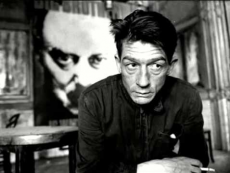
Email: EllaTournes@bexleygs.co.uk
Total Article : 45
About Me:Sixth form student currently studying English Literature, Drama and Theatre Studies, Classical Civilisation and History.

The disparity between genders, in terms of intelligence, is depicted in both books by the characters’ attitudes to culture. Literature is used as a sign of civilisation and ‘deep thinking’. In ‘Nineteen Eighty-Four’ Winston ‘(wakes) up with the word ‘Shakespeare’ on his lips’. In ‘Brave New World’, John the Savage frequently speaks in the verse of Shakespeare – when he finds the ‘Complete Works of Shakespeare’, Huxley describes, ‘It talked to him; talked wonderfully and only half-understandably, a terrible beautiful magic’. In both novels, Shakespeare and the literary culture he represents is used to make the two male protagonists seem intelligent, and different from the rest. Orwell clearly juxtaposes Julia’s attitude towards literature – she herself states that she ‘doesn’t care for reading’ and, if Winston attempts to talk of more advanced topics she ‘has a disconcerting habit of falling asleep’. This patronises Julia, and makes her seem ignorant compared to Winston. In ‘Brave New World’, Jenni Calder argues that ‘(Lenina) does not have the sensitivities of Bernard, and has absolutely no wish to discover anything beyond the life that she knows’[1]. This can clearly be supported by Lenina’s attitude to the savages, and her incredulity towards the way Bernard thinks. Huxley presents Bernard struggling to get his thoughts across to Lenina through the phrase ‘‘I want to know what passion is’ she heard him saying, ‘I want to feel something strongly’’. The phrase ‘she heard him saying’ is completely indicative of Lenina’s attitude towards Bernard – she doesn’t ‘listen’ she just ‘hear(s)’; she is passive in her thinking, she is not engaged in Bernard’s intellectual musings – the suggestion is that she isn’t capable. Both Orwell and Huxley elevate the minds of their male characters over their female characters.
Both Orwell and Huxley use the names of their characters to show a disparity between males and females. In ‘Nineteen Eighty-Four’, Julia is only known by her first name, whereas O’Brian is only known by his surname. This perhaps suggests the power of O’Brian as a masculine figure – it highlights the fact that Julia’s surname is interchangeable due to her gender, and that O’Brian, the novels clearest character representative of hegemonic masculinity, is more respected and revered. Winston Smith’s name is also symbolic of his struggle with his masculinity – on one hand, he is legendary and strong, a leader, through ‘Winston’ (an allusion to Winston Churchill) and on the other he is ‘Smith’, the ordinary, common, every-man.
In ‘Nineteen Eighty-Four’ and ‘Brave New World’ both Orwell and Huxley use the fates of their characters, and the endings of their books, to convey a final message about gender. On Winston’s final meeting with Julia, Orwell uses the natural world to imply the deadened nature of their relationship. Their meeting is described as ‘in the Park, on a vile, biting day in March, when the earth was like iron and all the grass seemed dead and there was not a bud anywhere except a few crocuses which had pushed themselves up to be dismembered by the wind.’ The use of the word ‘biting’ and ‘iron’ makes the setting seem hard, cold and wintry. Orwell also uses irony in his setting of ‘March’ and his description of the ‘dead’ grass and the lack of ‘buds’ – March is a spring month, evocative of new life in the natural world; here there is a lack of life, which implies a complete lack of hope in Julia and Winston.
[1] Jenni Calder
Source: https://www.google.co.uk/search?q=lenina+crowne&espv=2&biw=1093&bih=490&source=lnms&tbm=isch&sa=X&ved=0ahUKEwju28Dpl8nQAhUEIcAKHY8CB4MQ_AUIBigB#tbm=isch&q=winston+smith&imgrc=HlHY4gJkCOvNPM%3A

0 Comment:
Be the first one to comment on this article.